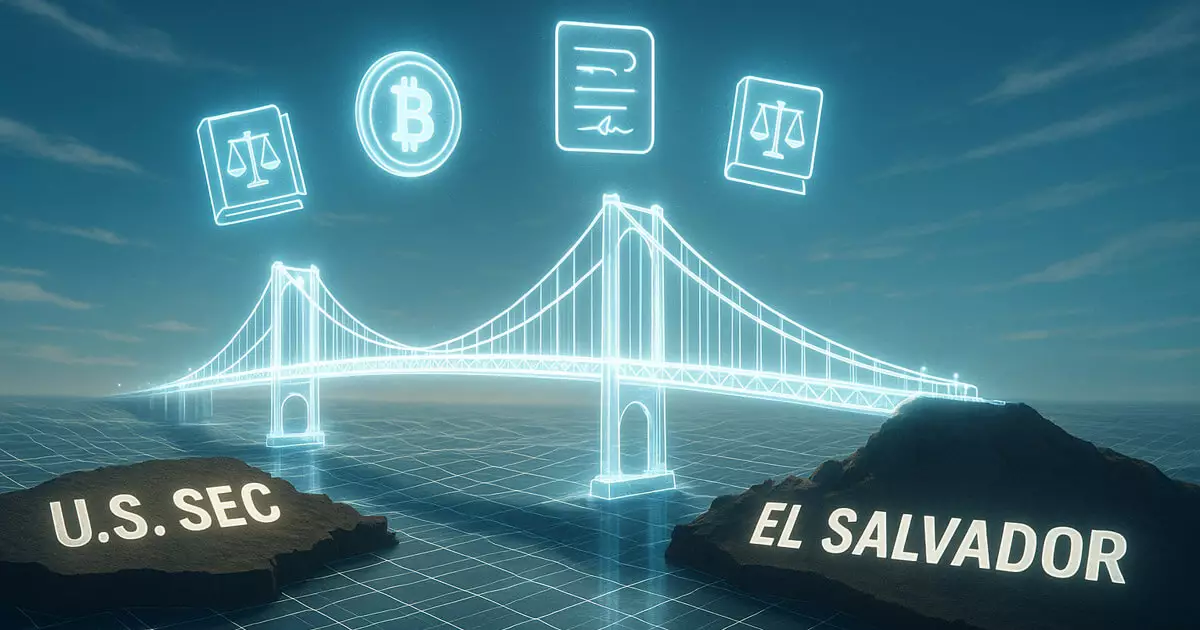The recent discussions between the US Securities and Exchange Commission (SEC) and El Salvador’s National Commission of Digital Assets (CNAD) mark a significant shift in digital asset regulation. The SEC’s willingness to launch a regulatory sandbox suggests a forward-thinking approach that could redefine how regulators and the crypto industry interact. Unlike traditional regulatory frameworks that often stifle innovation, this initiative is set to create a flexible environment where real-world applications can be tested. This is particularly crucial in an era when the digital asset market is outpacing outdated regulatory measures, leaving many players to navigate murky waters.
Lowering Barriers for Innovation
The proposed pilot programs, especially with an affordable cap of $10,000, reflect an understanding of the need for inclusivity in the digital landscape. By allowing smaller firms to participate, the SEC acknowledges that innovation can come from a multitude of sources, not just established players. This could very well lead to a blossoming of innovative projects that might otherwise never see the light of day due to high entry costs. Such a dynamic environment fosters innovation, encouraging diverse tokenization models that could transform various sectors, from real estate to fundraising.
Insights Through Real-World Application
The SEC’s focus on analyzing real estate tokenization as part of the sandbox initiative highlights a critical awareness of where the market stands today. The real estate sector, with its inherent complexities, serves as an ideal testing ground for these tokenization models. By observing how tokenized properties are handled across borders, regulators can gather meaningful data that directly informs policy decisions—an essential step toward crafting regulations that aren’t just theoretical but rooted in practical, real-world scenarios. Therein lies the beauty of this initiative: understanding the practical implications of regulations before they take effect.
A Shift in Attitude Towards Crypto
This budding partnership with El Salvador exemplifies a broader transformation in US crypto policy, especially since the Trump administration’s renewed focus on innovation. The SEC’s move away from heavy-handed enforcement to a more collaborative approach suggests an acknowledgment that stifling innovation is not an option in today’s fast-paced digital economy. By hosting crypto policy roundtables aimed at identifying regulatory gaps, the SEC is opening the door for a dialogue that could ultimately beneficially reshape the digital asset landscape.
International Collaboration as a Catalyst for Change
The cross-border nature of this initiative signifies a willingness not only to learn from other nations but to adapt US regulations accordingly. As digital assets do not recognize borders, this collaborative approach could serve as a model for other countries looking to innovate in their regulatory frameworks. By fostering a spirit of international cooperation, the SEC is not just enhancing its regulatory credibility but also positioning the United States as a leader in digital asset innovation.
In essence, the SEC’s exploration of cross-border digital asset oversight through these pilot programs could be a turning point. It suggests a new chapter in regulation that prioritizes innovation and safety, paving the way for a future where digital assets can thrive within a structured yet flexible regulatory environment.

